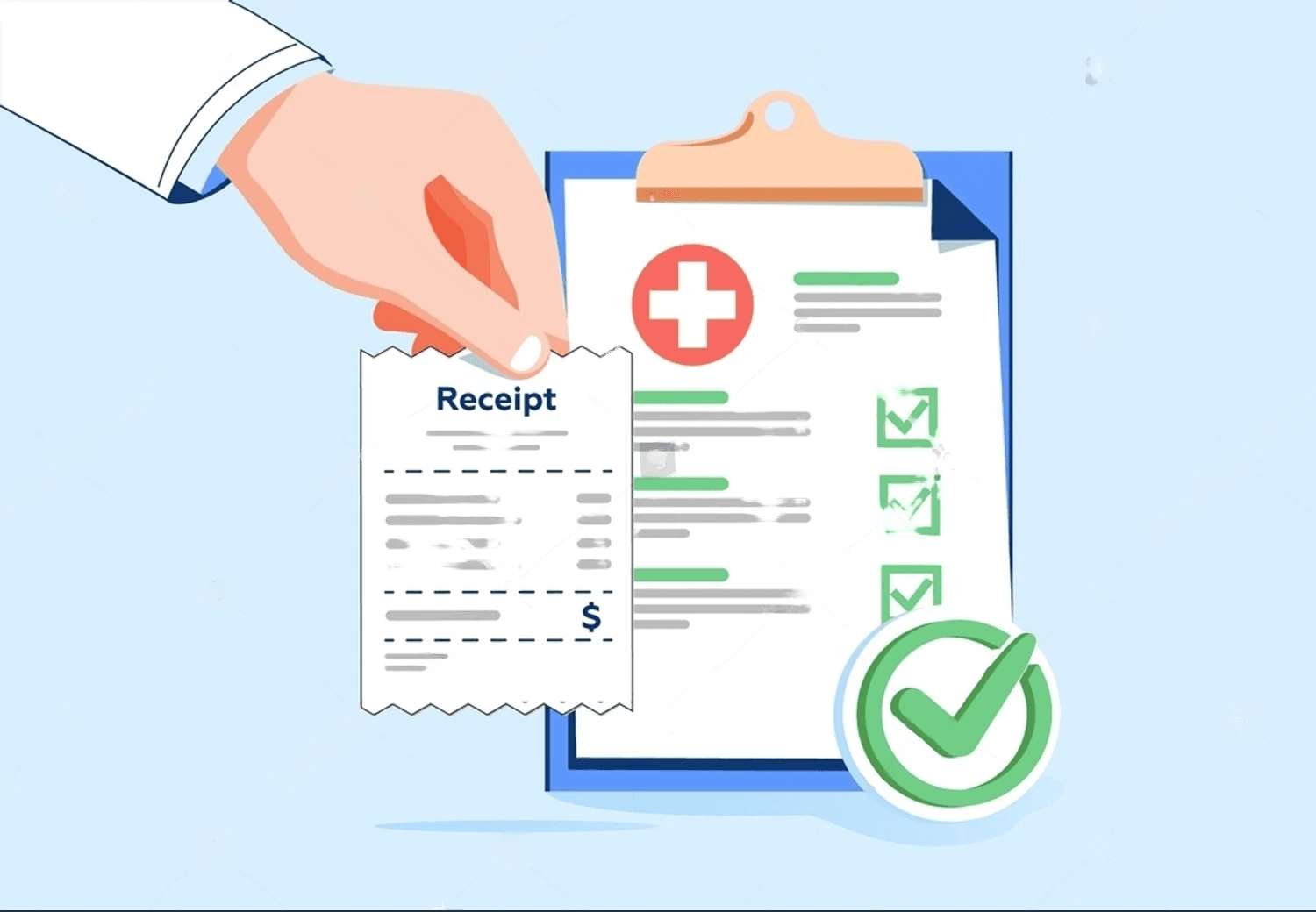Effective Marketing Strategies for Therapists
Effective marketing is crucial for therapists to reach new clients, build trust, and grow their practice in today's digital world.
Apr 25, 2024
By
Team Allia
Things have changed for mental health professionals. It’s not just enough to be good at what you do, you also need to market yourself properly.
Potential patients can get to know you and start to trust you even before you've had your first session.
At least 75% of patients turn to search engines when they're searching for a doctor or a treatment centre. This means therapists have a great opportunity to market their skills to reach their potential clients.
But this also means if you don’t use effective marketing strategies, you may lose the chance to connect to individuals who need your support.
In this article, we'll explore the important skill of making sure people can find you when they need your help.
We'll discuss the common problems therapists face when spreading the word about their services and offer some simple solutions.
But first, let’s discuss why marketing matters for therapists.
Why market your therapy practice??
There’s a high demand for therapists, but sometimes potential clients might not know where to find them.
That's where effective marketing strategies come into play. They can help you find more clients and also to build a thriving and fulfilling therapy practice.
Opening New Doors to New Clients
Effective marketing strategies aren't just about getting your name out there. They're about opening doors to new clients who might really need your help.
By reaching the right audience with the right message, you can connect with people who are seeking support and guidance.
Take, for example, an informative blog post on managing stress during the pandemic.
A potential client struggling with stress may visit your piece, find your insights helpful, and decide to reach out for a session.
Building Trust and Reputation
When you market yourself effectively, you're not just promoting your services; you're building trust. This trust is the foundation of a lasting therapeutic relationship.
Potential clients want to know they're in good hands, and a strong online presence or a well-organised referral system can reassure them that you're the right therapist for them.
Research shows that 84% of people trust online reviews as much as personal recommendations.
By encouraging satisfied clients to leave positive feedback on platforms like Google or Psychology Today, you can build a strong online reputation.
This reputation not only attracts new clients but assures them that you're a trustworthy therapist.
Increasing Demand and Earnings
Therapists who implement well-thought-out marketing strategies often find that demand for their services increases.
More clients mean more opportunities to make a positive impact, and yes, it can also lead to the ability to charge higher fees.
A therapist who specialises in relationship counselling, for instance, can use targeted marketing to reach couples in need.
By tailoring marketing efforts toward a specific audience, you can see a boost in demand.
Plus, when clients see the results of your expertise, they're often willing to pay a premium for your services.
A Fulfilling Career Path
Imagine a career where you have a steady stream of clients who truly appreciate your work. Effective marketing can help turn this dream into a reality.
By filling your schedule with clients who genuinely benefit from your therapy, you'll experience higher job satisfaction, knowing you're making a meaningful difference in people's lives.

Why do therapists fail to market themselves effectively?
But why are most therapists unable to build a strong online presence? Let’s explore some of the factors that hinder their true potential.
Factor #1: Knowledge Gaps in Promoting Services
Therapists might wonder how to share their message and get clients. Figuring out the right branding and tone can be tricky.
There are so many online marketing options available that it can make your head spin. Do you market on LinkedIn, Facebook, or both? It's a tough nut to crack.
Mental health professionals often wish to expand their referral networks, but it's like searching for a needle in a haystack.
Where do you even begin to establish new professional relationships?
And let's not forget the tech-savviness factor. For those who aren't exactly tech wizards, the whole online marketing toolkit can look like a foreign language.
Lastly, ethical concerns can sometimes slow down effective outreach. The idea of marketing and self-promotion might raise questions.
How do you do it while staying true to your values?
Factor #2: Highlighting their Niche
Therapists sometimes worry about being restricted to a particular niche. Mostly because they are open to supporting different kinds of people.
For example, some therapists deal with trauma patients but they are open to giving counselling to other clients who deal with anxiety.
But how does one choose what to write on their social media profile? This can often be an issue for some therapists.
Sharing information about their special skills in a way that clicks with the right people can be really hard.
These challenges—communicating their niche effectively and finding the perfect match for their skills—often require a bit of thought and creativity.
Factor #3: Creativity and Competition
It’s not easy to come up with marketing ideas that make you stand out.
To keep clients interested, therapists need to get creative. It's all about creating marketing content that's exciting and keeps clients coming back.
Using the right words and visuals is important to establish your unique identity. However, many therapists often run out of ideas and rarely update their social media profiles.
Most mental health professionals also stick to traditional marketing methods and don’t take the help of newer and innovative marketing channels.
Factor #4: Budget and Resource Constraints
Therapists often struggle when it comes to budgets. They worry that spending on marketing might put them at a loss.
Balancing the budget for marketing while providing top-notch client care can feel like a never-ending chore.
Many therapists are on the lookout for smart, budget-friendly marketing tricks that bring in clients without emptying the piggy bank.
Exploring budget-friendly marketing techniques that can bring in new clients is a must for therapists.
Later in the article, we will explore how therapists can discover cost-effective marketing strategies and maximise outreach to acquire new clients.
Here are some effective marketing strategies for your therapy
Step #1 - Create an Engaging Online Presence
Creating an engaging online presence starts with a professional bio and a friendly photo that welcomes potential clients.
For example, "Hi, I'm [Your Name], a licensed therapist with over [X years] of experience. I'm passionate about helping individuals navigate life's challenges and find a path towards healing and growth."
Next, select relevant categories that directly reflect your expertise, making it easier for potential clients to find you.
These categories should represent the main issues you address, such as anxiety, depression, or relationship counselling.
Finally, gather positive reviews from satisfied clients and share them on your website and social media to build trust and credibility.
Step #2 - Promote Niche Therapy Services
Start by highlighting what sets you apart. Share your unique background, like special training or personal experiences that shape your therapy style.
Next, create and share content that educates and resonates with your target audience. Share insights, tips, and stories related to your niche through blog posts, articles, or social media to connect with potential clients.
Promote your niche services across multiple platforms, including your website, social media profiles, and online directories.
Make sure everything you share tells the same story about your specialisation, creating a strong and trusted brand.
Step #3: Optimise Consultation Services
Promote your consultation services smartly. Clearly communicate your availability on your website, social media, and marketing materials.
Specify the duration of free consultations, typically around 15 minutes, to set clear expectations.
Create a welcoming environment for consultations. Whether in-person or online, emphasise that the space is comfortable, confidential, and free from distractions.
Set a friendly and empathetic tone to help clients feel at ease discussing their concerns. For instance, "Our consultations take place in a cozy and confidential setting, whether in my office or online. Your comfort and privacy are a top priority."
For online sessions, make sure to invest in a professional background, quality equipment, and a reliable internet connection. Conduct sessions in a place that ensures privacy and minimises disruptions.
Solution #4: Effective Social Media Marketing Strategies
Boost your social media game with effective strategies. Start by creating valuable content that resonates with your target audience.
Share articles, tips, and resources related to mental health, and offer actionable advice to help individuals manage their well-being.
For example, "Every week, we share practical tips and articles on managing stress, anxiety, and relationships. Follow us for expert advice to enhance your mental well-being."
Engage actively with your audience. Respond to comments and messages promptly, showing your dedication to clients' concerns and questions.
Take time to have meaningful conversations and demonstrate your willingness to support and listen. Use a kind and patient tone while responding to clients or general inquiries.
Promote your services on social media by highlighting the benefits of therapy and sharing success stories from satisfied clients.
Create a personal connection with your audience and market yourself as a safe space for clients of all ages and backgrounds.
Additionally, use social media to network with other therapists and mental health professionals in your field to learn from their experiences and insights.
Boost Practice Efficiency with Allia's Software
Allia's software is here to simplify the marketing process for therapists. This user-friendly tool makes marketing accessible and effective, so you can focus on what you do best – helping clients.
More from Allia
Dec 16, 2024
Managing No-Show and Late Cancellation Clients in Therapy Practice
Managing No-Show and Late Cancellation Clients in Therapy Practice
Sep 12, 2024
How to conduct a therapy intake session? A detailed guide
How to conduct a therapy intake session? A detailed guide
Sep 11, 2024
A Guide to Billing Insurance for Therapy for Mental Health Professionals
A Guide to Billing Insurance for Therapy for Mental Health Professionals



